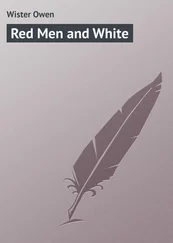“It’s just…” Cathy began.
Daniel leant towards her. As he did she finally looked up at him. There were tears in her eyes, lensing the blue of her irises. She smiled at him despite them, like she did when trying to explain something to the girls. Something grown up, something difficult.
―
The sound of the bedroom door brushing across the carpet made Daniel turn in their bed.
“Hey, kiddo,” he said, his voice still raw with sleep. “What’s up?”
Sarah, their youngest, stood in the doorway, her favourite picture book, The Very Hungry Caterpillar, fanning from her hand.
“Is it morning yet?” she asked. She wore a pair of Disney pyjamas, a blonde princess crowned across her belly.
“I guess it is, honey,” Daniel whispered. Rising on his elbows, he sat on the edge of the bed and slipped on a T-shirt.
“What say we let Mommy sleep, eh?” he said, going to Sarah and picking her up. As he carried her out of their bedroom and down the landing, her picture book tapping against his hip, Sarah put her thumb in her mouth and leant her head against her father’s shoulder. Daniel inhaled the scent of her hair. It smelt of a child’s sleep, of dreams, not memories. And, Daniel thought, as they entered her room and he sat her on the edge of her bed, reason enough for everything he was doing, and for everything he’d done.
―
In 2007 Centennial Hills was one of the newest suburbs of Las Vegas. Sometimes in the weeks after they’d first moved there, as he’d reversed their Toyota Camry out the driveway, Daniel was sure he could still smell the paint drying on its fences, the tarmac off-gassing from its streets. The local hospital was half under scaffolding, and all the houses, theirs included, had a model suburban hacienda look, as yet unworn by the lives of their inhabitants. Even the desert trees and shrubs lining the bald streets and cul-de-sacs were older than the houses they shaded, brought in by the developers to lend the neighbourhood a strangely youthful maturity. At his last posting, in Langley, Virginia, once the shell of Walmarts and gas stations had been broken, you could still find evidence of the men and women who’d first settled towns like Smithfield and Suffolk. Their names were on the street signs, their descendents on the council, and their fingerprints dried into the stoops and wooden sills of the older houses. In Centennial Hills the only fingerprints left in the paintwork were those of the Mexican labourers hired by the contractors to finish the job. The street signs, from what Daniel could tell— Rockridge Peak Avenue, Danskin Drive —had been chosen by a downtown city planner, and he didn’t even know if a local council had been formed.
As a counter to their immaturity, the streets of Centennial Hills, positioned as they were on the edge of the city, framed an ancient view. It was this view that greeted Daniel as he began his drive to Creech that morning: the Charleston range, its ragged peaks rising through a milky light to the summit of Mount Charleston itself. A bare, pleated mountain looking over the sprawl of Las Vegas like an implacable god.
In recent weeks, as he’d driven down his street towards this view, Daniel had found himself giving the mountain a silent salute. As if there was some luck, or maybe wisdom, to be mined from its craggy slopes that would still be there long after the city had been extinguished by the sands on which it was built. Despite their proximity, Daniel had never been into the range. His mountain bike was unpacked but unused in the garage, and his hiking boots sat expectantly in the utility room. So as he reached the end of his street that day and turned left, slipping the mountains from his windscreen into the passenger window, the Charleston range still remained unknown to him. They were his daily view but not yet his landscape, a feature of his geography but not yet his territory. Unlike those other mountains, 8,000 miles away.
Those mountains Daniel knew intimately. He’d never climbed in them, either, but he was still familiar with the villages silted into their folds, the shadows their peaks threw at evening and the habits of the shepherds marshalling their flocks along their lower slopes. Recently he’d even been able to anticipate, given the right weather conditions, at what time the clouds would come misting down the higher peaks into the ravines of the valleys. Over the last few months he’d begun to feel an ownership over them. Were they not as much his workplace as that of those shepherds? For the troops operating in the area they were simply elevation, exhaustion, fear. They were hostile territory. But for Daniel they were his hunting ground, and as such it was his job not just to know them but to learn them, too. To love them, even, so that from the darkness of his control station in Creech, he might be able to move through their altitudes as naturally as the eagles who’d ridden their thermals for centuries.
As he swung into an intersection, Daniel’s phone began to ring. Glancing at the screen, he slipped the hands-free over his ear.
“Hi, honey.”
“It’s Kayce’s soccer tonight,” Cathy said. “I forgot.”
Her voice sounded tight. Daniel guessed Sarah was still playing up over her breakfast.
“Okay,” he said. “It finishes at five, right?”
“Can you take Macy home, too? Emily just called to say she’ll be working late.”
He slowed at a stoplight. A truck drew up beside him, the sun flashing off its chrome fender. The sky above the road was a cyan blue. It was going to be a beautiful day. “Sure,” Daniel said. “Just text me their address.”
“Thanks,” Cathy said.
Daniel heard a muffled wail in the background. The clatter of a spoon falling. “Is she still not eating that?” he asked. But Cathy had already hung up.
Daniel’s operator, Maria, lived farther west, fifteen minutes closer to Creech. She shared a car with her husband, so on most shifts Daniel picked her up on the way in. At the end of their day he’d often drive her home, too. As she got into the Camry that morning, she was already talking, but not to Daniel.
“Waddya mean?” she said, her phone cradled under her neck as she pulled the door closed and reached for her seat belt. Daniel drove away from the kerb as she buckled up. “You tellin’ me that?” she continued, her Hispanic pitch nailing whoever was on the other end of the line. “You really tellin’ me that? Well, lemme tell you something, lady. That ain’t good enough. You hear me? I work, you know that? I work. Eight a.m. to six p.m.? What kinda window do you call that? D’mio! That ain’t no window, that is one mutha of a hole. Uh-uh. No way. So waddya goin’ do about it, eh?”
Daniel turned on the radio to try and tune out Maria’s conversation. Slim Whitman’s “My Heart Is Broken in Three” filled the car as they rose on the slip road to join 95 West. As they picked up the highway’s speed, Las Vegas fell away from them, reducing block by block from strip malls to suburbs, to half-built streets, to open desert, until all that was left were a few exploratory SUVs and a group of surveyors, their hard hats bright in the sun. When Maria eventually hung up she offered Daniel no more than an exasperated shake of her head in explanation. Turning to her window, she watched the desert scroll past, the cacti and shrubs, the tan hues of its sands. When they drove out here on earlier shifts, Daniel found this landscape beautiful, amber under a low sun, the smallest of stones bestowed with long shadows. But now, with the sun higher, the desert’s light was already flat and strong, its warmth matured into a threatening heat.
Daniel didn’t ask Maria about her phone call. He was grateful for her silence and he knew she’d feel the same — that she, too, needed this stretch of road uninterrupted by conversation. Driving westward on Highway 95, they had a chance to prepare; to begin their daily transition between the compartments of their lives. Later that day, when they’d drive the same road back east, it would be different. Then the car and the highway would become their decompression chamber. They’d talk, ask about each other’s families, tell jokes. But now Highway 95 was their road to war, and as such it demanded silence more than speech.
Читать дальше











